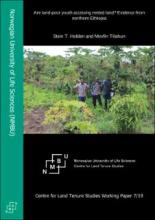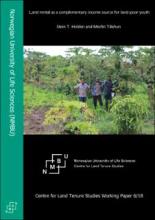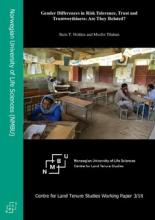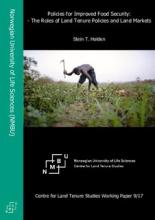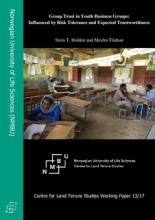Land Library Search
Through our robust search engine, you can search for any item of the over 73,000 highly curated resources in the Land Library.
If you would like to find an overview of what is possible, feel free to peruse the Search Guide.
/ library resources
Showing items 1 through 9 of 40.This report presents two papers developed in order to study behaviour in trust games in 18 Malawian villages in 2007.
We assess the extent of access and degree of participation by smallholder tenants in the land rental market in Malawi. Our study is based on three rounds of nationally representative Living Standards Measurement Surveys collected in 2010, 2013 and 2016, from which we construct a balanced panel.
Continued strong population growth in already densely populated rural areas in parts of Sub-Saharan Africa makes it harder for youth to choose agriculture as their main source of income. We investigate whether near landless youth still can access rented land as a complementary source of income.
We study how social preferences and norms of reciprocity are related to generalized and particularized trust among members of youth business groups in northern Ethiopia. Members of these groups are recruited among land-poor rural youth.
Continued high population growth in already densely populated rural areas in parts of Sub-Saharan Africa makes it harder for youth to choose agriculture as their main source of income. We investigate whether near landless youth can still access rented land as a complementary source of income.
The paper assesses risk tolerance, trust and trustworthiness among male and female youth group members in recently formed primary cooperative businesses in Ethiopia. Male members are found to be more risk tolerant, trusting and trustworthy than females.
This chapter is written for the European Commission for a book to be published by Springer on The Role of Smallholder Farms in Food and Nutrition Security. The author takes full responsibility for the content.
We analyzed lab-in-the-field trust and risk experiment with 1125 youth in 119 youth groups established as primary cooperatives to develop a joint business. The experiments were implemented using classrooms in local schools as field labs.
The paper utilizes household panel data to investigate whether the land rental market can facilitate improved access to land for land-poor tenant households over time and thereby facilitate expansion of their farming activity.



